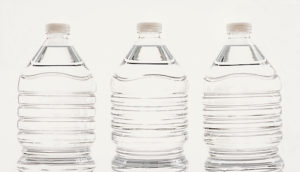Along with the rise of the zero-waste movement, there has been the inevitable backlash. As is often the case with aspirational concepts, many assessments only look to discredit it rather than understand it. Zero waste is particularly susceptible to such dismissals because, on the face of it, the challenge laid out feels insurmountable. How can any person, never mind a whole population, produce no waste whatsoever? Surely, it’s impossible?
However, these conclusions stem from a false logic—a logic that is black or white, all or nothing. In fact, it is this type of logic that gives rise to the most common zero-waste myth, the myth that states that it’s impossible to generate “zero waste”.
But what other common myths surround the zero-waste movement and why do these assumptions distract from the many reasons why zero waste is important? Here, we explore those questions and why zero waste doesn’t mean what you think it does!
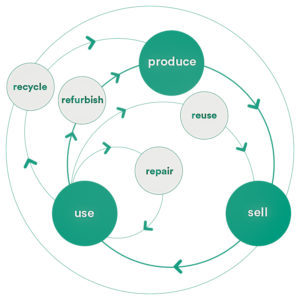 Zero Waste Means Creating “No Waste
Zero Waste Means Creating “No Waste
The phrase “zero waste” can be a stumbling block because it suggests that we shouldn’t be producing any waste at all. This is misleading. Broadly, zero waste is an aspiration to live sustainably and adopt a more circular economy, but practically speaking it’s best understood as an attitude; a way of examining our lifestyle and reducing waste where possible. When we look a little closer, we realize these possibilities are everywhere.
Zero Waste Means Using No Plastic
This is another common misconception that puts people off digging deeper into zero waste. While plastic is a huge problem for our environment, primarily because of its inability to biodegrade, there are still legitimate uses for it. The problem rests predominantly with single-use plastics; disposables like water bottles and food packaging in supermarkets. 300 million tons of plastic are produced worldwide every year and half of that is single-use. Zero waste merely means avoiding unnecessary uses of plastic.
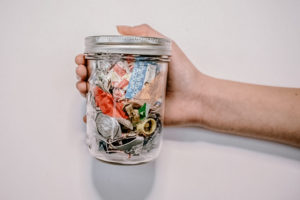
Source: thegreenhubonline.com
Zero Waste is Just for Influencers
Early adopters of zero-waste lifestyles on social media introduced the idea that any individual’s trash for the week should be able to fit into a 16oz mason jar (with ever more extreme time frames thrown into the mix). However, the trend grew from a legitimate exercise in waste awareness that still has a valuable function. The purpose of the glass jar is simply to prompt us to take account of what we are disposing of. We needn’t be performative about the task but just taking mental note of what you’ve been throwing in the trash for a week will help to identify what waste is unnecessary
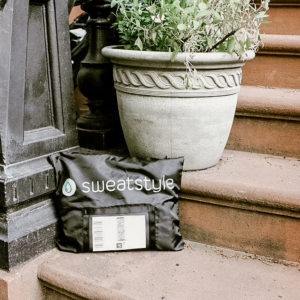
Source: instagram.com
Zero Waste is Just for Consumers
This is not true and is a great disservice to the efforts of many businesses. Indeed, it’s largely due to the entrepreneurs tackling issues around pollution and plastic waste in everyday products that consumers are able to change their lifestyles in so many ways.
However, you don’t need to produce bamboo toothbrushes to be a zero-waste business. Plenty of ordinary businesses are making changes to the workplace similar to those we can make at home. Businesses are also tackling areas like packaging and shipping via innovative companies like Returnity and EcoEnclose.

Source: shop.zerowaste.com
Zero Waste Will Turn You into A Perfectionist
A cynical observer might characterize the zero waster as a perfectionist discovering ever more tedious ways to reduce ever-smaller amounts of waste, devoting hours each day to composting or fabricating homemade shampoo. Well, it’s true that you will start to notice many small ways to reduce waste, but thankfully you will also find that zero-waste strategies result in fewer household chores, a clearer mind, and much more free time.

Source: shop.zerowaste.com
Zero Waste Products Don’t Work
The idea that zero-waste products won’t work as well as traditional products is perhaps a negative association resulting from the use of words like “handmade” or “artisan” around products that compromise on durability for the sake of aspirational (over) pricing. But the market has spoken, and the sheer choice of zero-waste products proves the assumption is false.
Remember, wasteful and environmentally harmful products are ubiquitous not because of their functional efficacy, but because of their ease of bulk manufacture and their ability to generate profit margins. Zero waste is about longevity and extended consumer value.
 Recycling is the Same as Zero Waste
Recycling is the Same as Zero Waste
An understandable mistake for those new to zero waste is to assume that recycling is zero waste. In fact, recycling is never the first option when we’re reducing our waste. The recycling process uses up masses of energy where a product could have been reused, or in the case of single-use plastics, never produced in the first place. Of all the municipal waste generated in the US each year, only 31% of it is recycled or composted. Reducing waste in the first instance is the priority.
 Zero Waste Means Going Vegan
Zero Waste Means Going Vegan
Another easy association to make is that zero waste means cutting out meat. True, many zero wasters may opt for a plant-based diet because of its lower environmental impact, but meat and fish can also be part of a zero-waste lifestyle if they are sustainably sourced. If the US population reduced its meat consumption by only 25% it would cut 82 million metric tons of greenhouse gas emission per year.
 Zero Waste Means Dressing Badly
Zero Waste Means Dressing Badly
Wearing only second-hand clothes these days doesn’t mean stepping out in rags or taking on a vintage look. On the contrary, spending the same amount of money on clothes as before but opting for secondhand pieces can result in a wardrobe of better-made, longer-lasting, and more stylish clothes. A growing trend towards re-selling instead of binning or recycling old clothes has brought masses of high-end pieces onto the secondhand market. And that’s before we consider the environmental benefits of preventing new clothes being made.
 Zero Waste Is More Expensive
Zero Waste Is More Expensive
This classic myth is the easiest of all to debunk. Buying in bulk – a cornerstone of zero-waste living – is cost-effective for families, businesses, and individuals. The tons of wasteful packaging that comes with products today presents a cost to the producer which is then passed onto the consumer. Add to that the expense of shipping with all that packaging and the bill grows. Remove the freight, remove the packaging, reduce the price. Simple.
On top of this, disposable or limited-life products are things we are paying for and then throwing in the trash. How many disposable water bottles have you tossed in the trash over the last few years? Would a $20 stainless steel bottle have paid itself off by now?
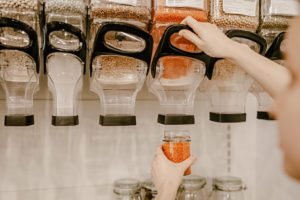 One Person Can’t Make a Difference
One Person Can’t Make a Difference
Given the scale of the problem you’d be forgiven for asking; can my efforts at zero waste really make a difference? But we only need to look at the way the zero-waste movement has expanded in recent years to realize that peer-to-peer knowledge sharing is invaluable.
If you make a small change and mention it to a few friends, the exponential impact can be astonishing. Conversely, when 7 billion people shrug and toss their plastic bags in the trash, the cumulative effect is devastating. Taking personal responsibility is all any of us can really do, but it comes with many financial and personal rewards.
 Zero Waste Takes Up Too Much Time
Zero Waste Takes Up Too Much Time
Again, the opposite of this is true. Zero waste is about simplifying, not complicating. Recycling and taking out the trash take time. By reducing those household chores by dramatically cutting waste, you will find more time in the kitchen to prepare your meal and more time to relax afterward. Buying in bulk means fewer shopping trips, and less packaging means less time playing Tetris with kitchen cabinets. The gains are small but surprising.
The Zero-Waste Community is Judgmental
In any movement, there are those who prefer to preach than discuss, but this is a minority in the zero-waste sphere. Most bloggers and not-for-profits are focused on providing valuable resources and support, stripping away the (predominantly) mental barriers to going zero waste. They have done the hard yards so the rest of us can take the easy road to zero-waste changes that suit us.

Source: thespruce.com
You Have to Make Everything Yourself
Perhaps this is another myth born from the influencer trend of home recipes for store-bought products. Indeed, everything from toothpaste to washing detergent can be whipped up at home without much fuss, but don’t be persuaded that not doing so is a fail. Making stuff is an option depending on how much time you have, although you may be surprised to learn how easy some of it is.
 Zero Waste is for the Middle-Class
Zero Waste is for the Middle-Class
As a lifestyle change popularized by young people on social media, sharing their stories and inspirations can hardly be characterized as the realm of the elite. But there is a correlation between the middle classes and environmental action at home. The caveat to this is that they undermine their hard work by flying abroad on holiday. Meanwhile, low-income demographics tend to have fewer net emissions without even trying. Considering zero waste is essentially about thrift, it hardly seems like an activity reserved for the wealthy.
Dispelling these many misunderstandings is easy in theory, but it’s best to find out yourself by trying one small change at a time. Why not start by looking at what goes into your trash this week? Or make a note of any consumer purchases for the next month and ask yourself if there might be a zero-waste alternative out there?
For more tips and guidelines on your journey towards zero waste activity, subscribe to the blog or browse the store today.


